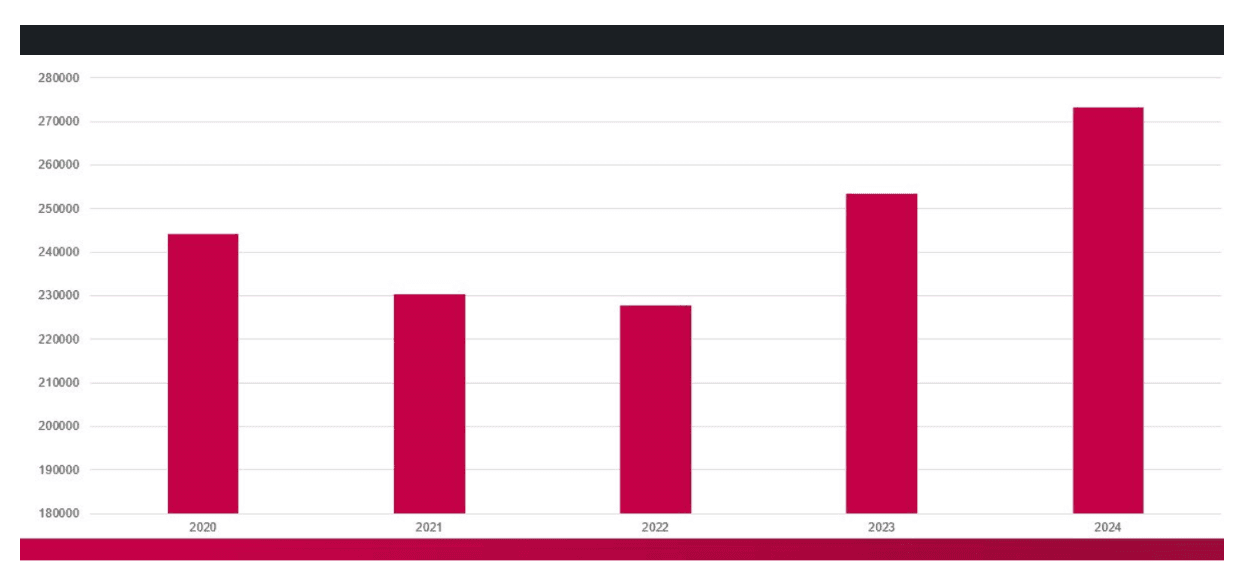More patents in the Netherlands: preliminary research is crucial
In a series of blog posts, Marco Coolen provides insight into his work as a Dutch and European patent attorney at AOMB.
Published on June 1, 2025
Marco, a patent attorney at AOMB since 2013, shares his expertise on IO+ about patents—how they work, why they matter, and when they lose their value.
The Netherlands now has 273,335 patents in force. That is more than 20,000 more than last year, an increase of around 8%. Good news for the innovation climate, you might think. However, for entrepreneurs, this growth also brings a new reality: the increased likelihood that your innovation will inadvertently infringe on someone else's patent.

The unitary patent changes the playing field
Since the introduction of the unitary patent, it has become significantly easier to arrange protection in multiple European countries simultaneously. Whereas in the past you had to make a conscious choice for each country (and pay separate costs), you can now obtain protection in 18 countries, including the Netherlands, with a single application.
For entrepreneurs, this means:
✔️ Lower costs for obtaining protection in several countries.
✔️ Automatic coverage in countries you may not have immediately considered.
✔️ More patents active in your home market, including those of foreign companies.

Marco Coolen, photo © Bart van Overbeeke
More patents, less overview
What sounds positive also has a downside. Companies from other countries are more likely to opt for the unitary patent, which automatically provides them with protection in the Netherlands, often without actively considering it.
For you, as an entrepreneur, this means that the number of patents applicable here has increased significantly. This increases the likelihood that you will unknowingly infringe on a patent when developing a new product, process, or service.
Why thorough preliminary research is essential now
Whereas in the past you could assume that not every foreign patent applied to the Netherlands, this is now much less the case. The threshold is lower, the coverage is broader, and the competition is more intense.
That is why thorough preliminary research (also known as a freedom-to-operate investigation) is more important than ever. It allows you to:
- Identify which patents are active in your market or technology field.
- Check whether your innovation poses any risks of infringement.
- Make adjustments before investing a lot of money in development or market introduction.
A thorough preliminary investigation not only saves you from expensive legal proceedings but also from damage claims and delays.
Responding smartly to the new reality
The growth in the number of patents in the Netherlands does not have to be an obstacle. It simply forces you to be smarter about innovation. By being sharp from the outset, you can avoid risks and better protect your investments.
What's more, you can also discover opportunities: perhaps there are expired patents that you can use freely, or you may see where there is room to build a strong patent position for yourself.
The Dutch innovation landscape is becoming increasingly crowded, international, and competitive. With over 273,000 patents in the background, it is no longer a given that you can develop freely. However, with thorough preliminary research, you not only avoid problems but also increase your strategic advantage.
In this new playing field, those who know the rules play the game better. And those who play smart win.

The World of Patents
Dutch and European patent attorney Marco Coolen (AOMB) gives us a better understanding of the world of patents. How do they work, why are they important, but also: when do they lose their usefulness?
